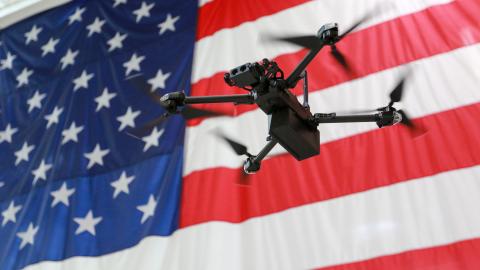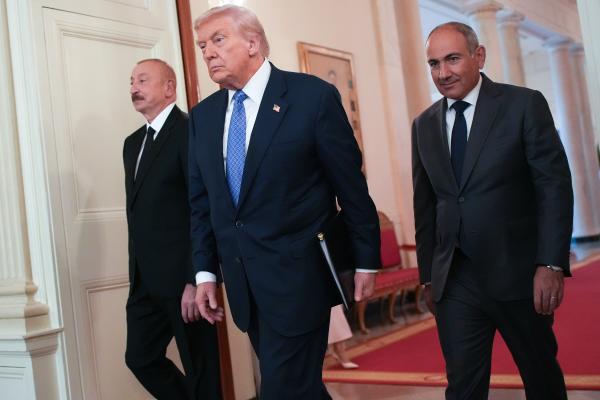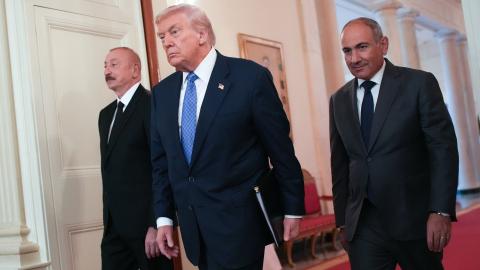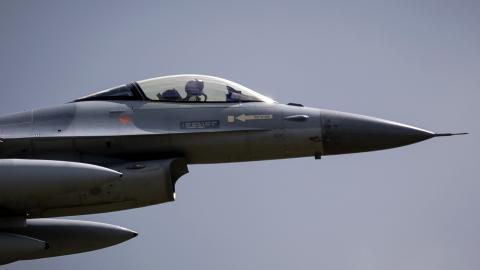

Caption
US Army service members provide a small uncrewed aircraft system demonstration for Lithuanian Vice Minister of National Defense Karolis Aleksa and accompanying Lithuanian defense officials during a state partnership program visit to Fort Indiantown Gap, Pennsylvania, on February 10, 2025. (US Army National Guard photo)
Related Events
19
February 2026
In-Person Event | Hudson Institute
The Economic Case for the US-Israel Partnership with Minister of Economic Affairs Noach Hacker
Featured Speaker:
Noach Hacker
Moderator:
Michael Doran

20
February 2026
In-Person Event | Hudson Institute
Toward a Stronger US-Taiwan Partnership: Unpacking the Agreement on Reciprocal Trade
Featured Speakers:
Rupert Hammond-Chambers
Bonnie Glaser
Moderator:
Riley Walters

20
February 2026
In-Person Event | Hudson Institute
Toward a Stronger US-Taiwan Partnership: Unpacking the Agreement on Reciprocal Trade
Join Hudson for an expert panel on why these deals are so important for both nations, what they mean for the future of US supply chains, and what potential challenges remain for implementing these deals.

Featured Speakers:
Rupert Hammond-Chambers
Bonnie Glaser
Moderator:
Riley Walters
20
February 2026
In-Person Event | Hudson Institute
The Road to Lasting Peace: US Leadership in the South Caucasus
Featured Speakers:
Vinay Chawla
Luke Coffey
Sonata Coulter
Andrew D’Anieri
Efgan Nifti
Moderator:
Michael Doran

20
February 2026
In-Person Event | Hudson Institute
The Road to Lasting Peace: US Leadership in the South Caucasus
Join Hudson for a conversation with officials who have been at the center of these efforts, expert financiers, and leading regional analysts on what the deal achieved, what comes next, and why sustained US engagement in the South Caucasus matters.

Featured Speakers:
Vinay Chawla
Luke Coffey
Sonata Coulter
Andrew D’Anieri
Efgan Nifti
Moderator:
Michael Doran
20
February 2026
Virtual Event | Online Only
Nigeria: Country of Particular Concern or Counterterrorism Partner?
Featured Speakers:
Kabir Adamu
Yusuf Anka
Cheta Nwanze
Michael Walsh
Moderator:
James Barnett

20
February 2026
Virtual Event | Online Only
Nigeria: Country of Particular Concern or Counterterrorism Partner?
Will this security cooperation be the new normal for US-Nigeria relations, or will Trump escalate his diplomatic and economic pressure?

Featured Speakers:
Kabir Adamu
Yusuf Anka
Cheta Nwanze
Michael Walsh
Moderator:
James Barnett
























